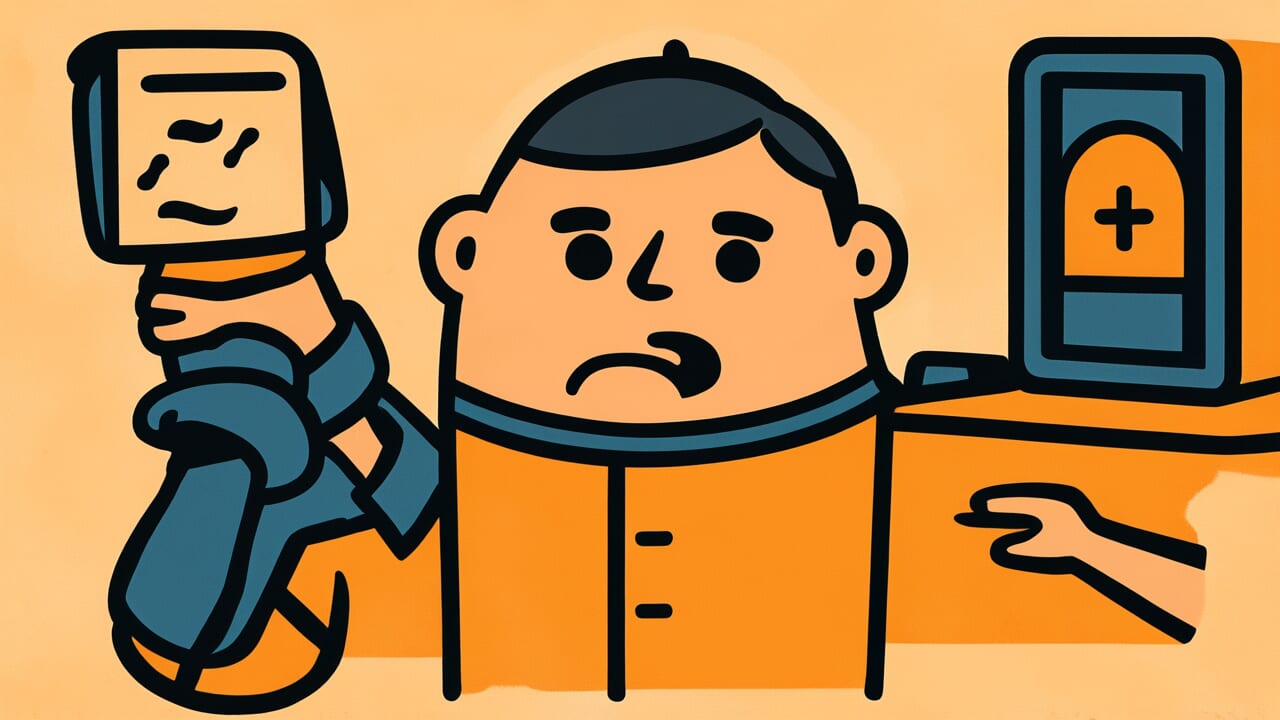How to Read “When things get to the worst, they’ll mend”
When things get to the worst, they’ll mend
[when things get to the wurst, thale mend]
The word “mend” here means “get better” or “improve.”
Meaning of “When things get to the worst, they’ll mend”
Simply put, this proverb means that when situations reach their absolute lowest point, they will naturally begin to improve.
The literal words paint a clear picture. When things get to “the worst” means hitting rock bottom. There’s nowhere lower to go. The word “mend” means to repair or heal. Together, they promise that improvement comes after the darkest moments.
We use this wisdom when life feels overwhelming. Maybe someone loses their job, faces health problems, or deals with relationship troubles. When everything seems to go wrong at once, this saying offers hope. It reminds us that bad times don’t last forever.
What’s interesting about this wisdom is its mathematical logic. If you’re at the absolute bottom, any change must be upward. People often find comfort in this idea during their hardest days. It suggests that hitting rock bottom can actually be the first step toward recovery.
Origin and Etymology
The exact origin of this proverb is unknown, though similar expressions appear in English literature from several centuries ago. Early versions focused on the idea that extreme situations naturally reverse themselves. Writers and speakers have long observed this pattern in human experience.
This type of saying emerged during times when people faced frequent hardships. Before modern medicine and social safety nets, communities relied heavily on hope and patience. Proverbs like this one helped people endure difficult periods. They provided emotional support when practical help was limited.
The saying spread through oral tradition and written works. Over time, the wording changed slightly, but the core message remained the same. Different regions developed their own versions of this wisdom. Today’s form captures the essential idea in clear, direct language.
Interesting Facts
The word “mend” comes from the Latin word “emendare,” meaning “to correct” or “free from faults.” This connects to the idea that hitting bottom allows us to see what needs fixing. The phrase uses simple, everyday language that makes the wisdom accessible to everyone, regardless of education level.
Usage Examples
- Mother to teenage daughter: “I know the breakup feels devastating right now, but remember – when things get to the worst, they’ll mend.”
- Manager to stressed employee: “This project disaster seems overwhelming, but hang in there – when things get to the worst, they’ll mend.”
Universal Wisdom
This proverb captures a fundamental truth about how systems naturally seek balance. When any situation becomes extremely unstable, forces begin working to restore equilibrium. This applies to everything from personal crises to economic cycles. Humans have observed this pattern for thousands of years across all areas of life.
The wisdom addresses our deep fear of permanent suffering. When we’re in pain, our minds often convince us that things will never improve. This creates additional suffering beyond the original problem. The proverb counters this mental trap by pointing to a universal law. Extreme states rarely maintain themselves indefinitely.
There’s also profound psychological insight here about human resilience. When we truly hit bottom, something shifts in our perspective. We stop fearing the worst because we’re already living it. This removes a huge mental burden and frees up energy for recovery. The proverb recognizes that sometimes we need to fully experience our lowest point before we can begin climbing back up.
When AI Hears This
When people lose all their options, something amazing happens to their minds. They stop worrying about making perfect choices. Fear of failure disappears because they’re already failing. Social pressure vanishes because there’s nothing left to lose. This mental clearing acts like removing clutter from a room. Suddenly they can see solutions that were always there. Their brain stops spinning through endless possibilities and focuses completely.
Humans actually think better when trapped than when free. Too many choices create mental paralysis and anxiety. Safety nets make people lazy and indecisive. But desperate situations force the mind to work at full power. People discover strength they never knew they had. They take risks they avoided for years. The brain seems designed to save its best performance for emergencies. Crisis unlocks hidden human abilities.
This reveals something beautiful about how humans work. Your species keeps its greatest capabilities in reserve until needed. Like a hidden emergency system that activates during disasters. Most people live using only part of their potential. But when everything falls apart, they become surprisingly creative and brave. It’s as if humans were built to handle the impossible. Your worst moments often become your most transformative ones.
Lessons for Today
Living with this wisdom requires patience and faith during dark periods. When everything seems to be falling apart, our natural instinct is to panic or despair. Instead, this proverb suggests we can find peace in knowing that extreme situations contain the seeds of their own resolution. The challenge lies in maintaining hope when evidence suggests otherwise.
In relationships and work situations, this understanding helps us avoid making desperate decisions during crisis moments. When conflicts reach their peak, pushing harder often makes things worse. Sometimes the wisest action is to wait and allow natural forces to restore balance. This doesn’t mean being passive, but rather choosing our interventions carefully.
For communities and groups, this wisdom offers perspective during collective struggles. Economic downturns, social conflicts, and organizational crises all follow similar patterns. The darkest hour often comes just before breakthrough solutions emerge. Understanding this cycle helps leaders and citizens maintain stability during turbulent times. The key is remembering that “the worst” is temporary, while our capacity to rebuild and recover is enduring.



Comments